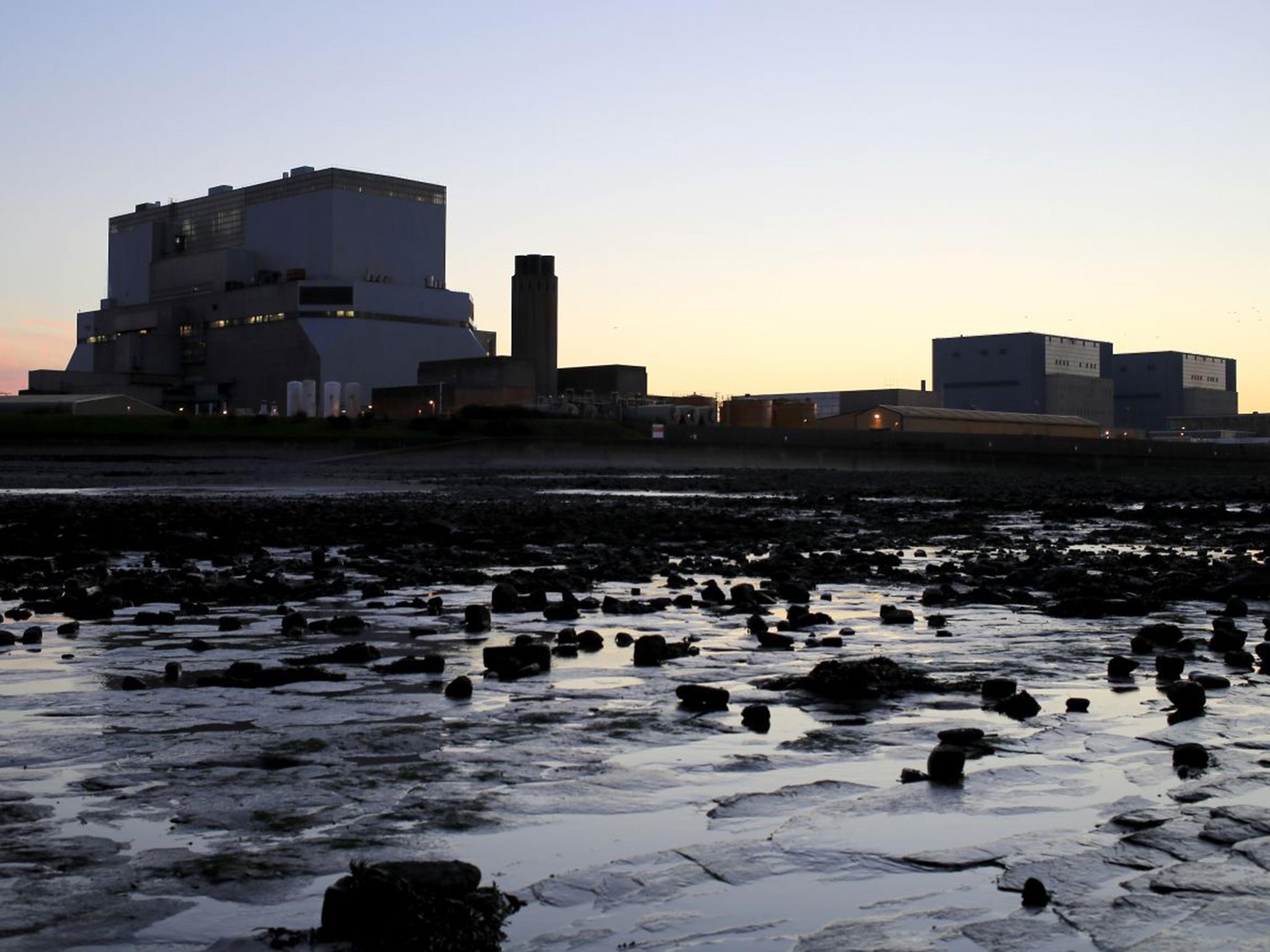Case against Hinkley Point nuclear development gets stronger after yet another critical report
The Energy & Climate Intellligence Unit says Britain could save £1bn annually by opting for alternatives such as renewables

Your support helps us to tell the story
From reproductive rights to climate change to Big Tech, The Independent is on the ground when the story is developing. Whether it's investigating the financials of Elon Musk's pro-Trump PAC or producing our latest documentary, 'The A Word', which shines a light on the American women fighting for reproductive rights, we know how important it is to parse out the facts from the messaging.
At such a critical moment in US history, we need reporters on the ground. Your donation allows us to keep sending journalists to speak to both sides of the story.
The Independent is trusted by Americans across the entire political spectrum. And unlike many other quality news outlets, we choose not to lock Americans out of our reporting and analysis with paywalls. We believe quality journalism should be available to everyone, paid for by those who can afford it.
Your support makes all the difference.Another dagger plunged into the heart of Hinkley Point C?
The Energy & Climate Intelligence Unit, an independent think tank, says Britain could meet both its energy needs and climate change targets with existing technologies and without the teetering proposed development on the Somerset Coast.
“While Hinkley C could form part of the UK’s future energy mix, it is not essential,” is its rather dry conclusion.
The more entertaining stuff is in director Richard Black’s blog. He describes Britain’s first new nuclear plant in a generation as: “A giant Godzilla that will either crush all before it or collapse under its own weight.”
The latter is much the more likely outcome. But you can see his point.
It is, however, a giant low carbon Godzilla that could produce up to 7 per cent of the UK’s electricity needs. What do you have to say about that, Mr Black?
Not much, according to EDF, the French state owned power company that after months of humming and hawing recently decided it wants to press ahead with the project. EDF describes the ECIU’s proposed alternatives as “not credible”.
They would involve Britain adopting a mix of approaches including more new wind generation plants, laying new cables to connect the UK with other countries’ grids, and greater use of gas, combined with measures to manage demand (an underrated good idea, that last one).
Its report found that the UK would be able to replace the power Hinkley would have provided with as few as four big wind farms (if they were in addition to those already planned) although a multi-faceted approached would be preferable for obvious reasons. The wind doesn’t always blow after all.
Adopting its alternatives, the think tank says, could save the UK as much as £1bn a year. Remember, EDF and its partners have been guaranteed a fixed price of £92.50 per megawatt hour for Hinkley’s power for 35 years. That is nearly double the current wholesale rate.
It would be possible dismiss the ECIU’s report as an attempt to garner a bit of publicity on a quiet news day leading into the Bank Holiday if there weren’t supporting reports from other sources.
However, there are. As I have reported, the National Audit Office warned that the plan might cost as much as £30bn in top up payments (the Government’s claim that it will add only £10 to the average electricity bill looks questionable at best), shortly before Hinkley was given the green light by EDF. The NAO also raised the issue of renewables, pointing to the speed at which technology is improving.
Its missive came just a week after the Infrastructure & Projects Authority had put the potential cost of the new nuclear development at a staggering £37bn.
But, but, but, renewables are a joke, aren’t they? Surely it’s only tree hugging hippies decked out in vegetable rights and peace t-shirts made from recycled clothing that think they’re a realistic alternative?
That’s been a myth for some time, albeit a pervasive one. The hard headed businessmen that make up the Institute of Directors’ membership were equivocal on Hinkley but came out as quite favourable towards renewables in a recent survey. Some 75 per cent of them agree that the UK needs to de-carbonise its energy too.
All this adds up to a case against Hinkley that is gathering strength.
I’d written in favour of Hinkley in the past on the basis that carbon represents a far greater threat as a pollutant than do modern nuclear plants.
But the National Audit Office’s scepticism shook my faith. This latest report is indeed another dagger in the project's heart from where I sit.
What matters, of course, is whether the same is true from where Theresa May sits. Shortly after entering Number 10, the PM decided to delay the project to allow ministers to take another look. Be brave Ms May. Cut the country’s losses on this one and press ahead with renewables. Making the UK a leader in that sphere would be a far better legacy for you than the construction of an expensive white elephant on the Somerset coast.
Join our commenting forum
Join thought-provoking conversations, follow other Independent readers and see their replies
Comments